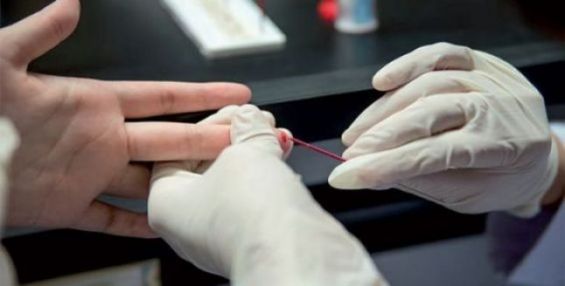The United Nations Program on HIV / AIDS (UNAIDS) released its new report this week. Entitled «Seizing the moment, tackling entrenched inequalities to end epidemics», the report shows that 2020 targets will not be met because of deeply unequal success; COVID-19 risks blowing HIV progress way off course.
According to UNAIDS Morocco is one of the countries that are on the right track to reach the 90-90-90 targets. The latter consists of having 90% of all people living with HIV know their HIV status, 90% of all people with diagnosed HIV infection receiving sustained antiretroviral therapy and 90% of all people receiving antiretroviral therapy having viral suppression by 2020.
The Kingdom has succeeded in achieving two parts of this goal. Indeed, people living with HIV know their status and receive treatment and people receiving antiretroviral therapy will have viral suppression. According to the UNAIDS 90-90-90 Morocco dashboard, 77% of Moroccans living with HIV knew of their state of health in 2019. This percentage varies between 87% for women and 68% for men.
As for the second part of the objective, 91% of people tested positive (90% women and 89% men) receive antiretroviral therapy. 92% of people receiving this treatment have viral load suppression (92% of women and 92% of men).
However, for the percentage of people living with HIV whose viral load is suppressed, the rate drops to 64% for all ages. It ranges from 73% for women to only 55% for men, the report revealed. Overall, 8,900 women and 12,000 men are living with HIV in Morocco.
Improved access to screening and treatment in Morocco
UNAIDS indicates that «knowledge of HIV status, treatment access and viral suppression varies between men and women living with HIV in the region». «Access to testing and treatment services is improving in some countries, such as Algeria and Morocco, but due to poor service coverage in several other countries, only 38% [25–63%] of people living with HIV in the region were accessing antiretroviral therapy in 2019», it added.
For Morocco, the same source recalls that more than 50% of gay men and other men who have sex with men reported receiving at least two prevention services in the past three months.

For men who inject drugs, UNAIDS said that covering needles and syringes distributed individually, via the needle-syringe program, remains «average» in Morocco.
Regarding laws and policies, the UN program recalls that the Kingdom «does not criminalize transgender people», unlike sex workers, same-sex acts and people who use drugs.
The same dashboard also reports the absence of laws criminalizing transmission or exposure to HIV and the imposition of compulsory HIV testing for marriage certificates, employment contracts or residence permits.
Community work honored in the era of the coronavirus
As the world faces a global health crisis, UNAIDS highlights the work of the Moroccan Family Planning Association and its HIV services to help women living with the virus. «Lockdown measures in Rabat, Morocco, are flattening the COVID-19 curve, but they are also making it more difficult for women to access sexual and reproductive health services», said the program.
Thus, members of the Moroccan association and those of the community of people living with HIV were mobilized to guide and assist women living with HIV. «Services quickly switched to telephone and online formats, providing telemedicine and gender-based violence screening, referrals and athome services», it added.
«A primary concern during lockdown has been ensuring that people living with HIV still have access to antiretroviral medicines, and that pregnant women living with HIV are able to safely deliver their babies without risk to their own health (including COVID-19 exposure) and without risk of vertical transmission of HIV».
For Fadoua Bakhadda, executive director of the Moroccan Family Planning Association, regarding women living with HIV, «their concerns during this crisis have been more about gender-based violence and the health and safety of their children. They worry more about keeping their babies safe from HIV and COVID-19 rather than about themselves».




 chargement...
chargement...












